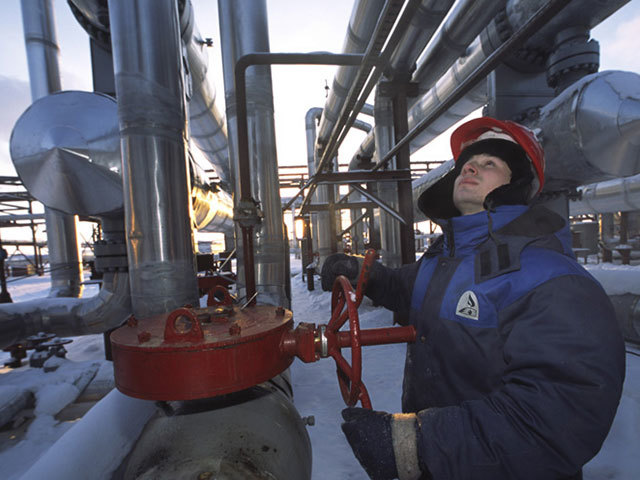
French oil giant Total stopped buying shares in Russian partner Novatek after the Malaysian Airline plane was downed in Ukraine, the company’s chief financial officer has revealed.
“We stopped buying shares in Novatek the day of the airplane accident after considering all the uncertainty that it created,” Patrick de la Chevardiere said on a conference call about the firm’s second-quarter earnings.
The European Union and the US have toughened their stances against Russian President Vladimir Putin after the Malaysian jet was hit by a missile that American officials say was probably fired from a Russian-supplied launcher. Russia denies involvement.
Total had an 18% stake in the Russian company at the end of June, de la Chevardiere said. This falls short of a plan outlined by the French explorer previously to raise the holdings to as high as 19.4% this year.
Total’s plans to invest billions of dollars in energy projects in Russia to boost its production has been challenged by US and European sanctions against officials close to Putin, including Novatek shareholder Gennady Timchenko.
Total is a partner in the Yamal liquefied natural gas project in the Arctic, Russia’s largest. The deposit is controlled by Novatek and the object of some of the US and EU punitive measures.
“At this stage we haven’t halted our operations on the site of Yamal,” de la Chevardiere said.
The partners in the project will evaluate the situation at the end of August after studying “all the consequences of the sanctions.”
The European Union unveiled a plan to tighten sanctions on Russia that include restrictions on the export of equipment to modernize the oil industry.
“We are not at a stage where we can know the impact of the sanctions on us,” de la Chevardiere said. “I have not heard of any transactions that we have made with people who are blacklisted,” he said, not referring to the most recent list established by the EU.
Following the announcement of a first round of sanctions against Russia after it annexed Crimea, Total chief executive Christophe de Margerie adopted a business-as-usual stance that took him to St. Petersburg in May to an economic forum. There he signed a deal with another Russian energy company, Lukoil, to seek shale oil in Western Siberia.
Russia may become Total’s largest oil and gas supplier by the end of the decade, up from fourth last year, Michael Borrell, senior vice-president for continental Europe and central Asia, said at an oil and gas conference in Paris in April.
“We need more time to study the consequences of the sanctions. If the sanctions effectively ban us from working, then we will stop working,” de la Chevardiere said.
“We must not forget that Russia is a big oil country.”